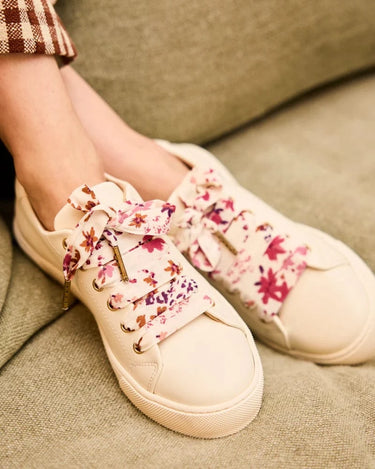Mental Health For Vegans: How to Deal with Living In A Non-Vegan World
Vystopia isn't a word that's familiar to many, but for vegans, once they learn of its meaning, most will relate to it. Coined by psychologist Clare Mann in her book of the same name, vystopia stands for the anguish of being vegan in a non-vegan world. And this is indeed something that most vegans will encounter at some point in their vegan journey if not throughout it.
By Sascha Camilli: writer, speaker, and animal rights activist.
While it is something that many will struggle with, Mann believes vystopia to be a normal and adequate response to society's systemic abuse of animals. "Living in this not-yet vegan world presents huge emotional challenges for the vegan aware of the enormity of animal suffering and who wants to play their part in ending it," says Mann.
The 2022 study that found that people following a vegetarian or vegan diet were more likely to suffer from depression than others did have some flaws, such as possible inaccurate reporting of food intake. However, what the authors and anyone reading the study must also consider is that many people who go vegan for ethical reasons are confronted with the kind of injustice that they deem fundamentally unacceptable on a daily basis, which is deeply traumatising.
Dr Melanie Joy, psychologist, founder of Beyond Carnism and author of Why We Love Dogs, Eat Pigs and Wear Cows: An Introduction to Carnism among other books, notes that just being vegan in a world that isn't is emotionally draining. "Many people who are vegan have woken up to the fact that we are living in the midst of a global atrocity. Vegans live in a world that daily offends their deepest sensibilities and they have to navigate this, which really affects you psychologically and emotionally."

Being faced with witnessing animal abuse on the regular in our daily lives can be daunting – from commercials featuring "happy cows" that vegans know to be anything but, to violent videos shared by advocacy organisations and ads for dogs who urgently need rehoming in vegan Facebook groups - the onslaught of depressing content seems to be never-ending. Dr. Joy's advice is to limit your exposure to such content. "This imagery, or simply the awareness of what happens to trillions of sentient beings, can easily traumatise people. And once your are traumatised, burnout often follows."
Dr Joy stresses that continuously exposing yourself to traumatic content actually makes you a less effective advocate, as burnt-out activists are much less useful to their cause than healthy ones. Dr Joy also notes that advocates often put their own needs last, as the urgency of the cause is so overwhelming. "Many vegan advocates become self-neglecting. You can see a lot of overwork, putting in long hours – and there are all sorts of problems that come from that."
Relational difficulties can also be part of what it means to be vegan in a dominantly non-vegan world. Dr Joy thinks of the times when vegans feel guilty about not immediately turning those around them vegan too, which can feel like a failure, like you've let the cause down. "A lot of vegans will feel like they have to take every opportunity to advocate on behalf of veganism, like it's their responsibility to turn around them vegan, and if they haven't done this then they are somehow failing the animals. They take on a responsibility to fix a problem that they cannot fix themselves." This is when you fall out with a friend because they own a fur coat, or feel resentful towards your partner because they don't appear to realise the urgency of ending animal exploitation. If you're the only vegan in your family, gatherings and get-togethers that used to be a source of joy now become something to dread.
How to live joyfully as a vegan in a non-vegan world? Mann believes it's down to remembering your own needs to deal with the trauma. "It's essential to develop routines and practices to regularly pass the trauma through your body so it doesn't result in the hopelessness and despair known as vystopia." There is a variety of ways in which we can do this, according to Mann. Breathing exercises are one way she advises. "This starts with sitting quietly, both feed on the floor and eyes closed. Breathing in slowly to the count of four and out for the count of four. This produces a calming effect as the outbreath activates the parasympathic nervous system which brings us back to ease. When accompanied with self-soothing supportive language like, 'It's ok. I am safe. I've got this', it can provide a sense of calm, as does visualising trauma leaving the body on the exhale."
Other techniques Mann recommends include Emotional Freedom Technique (EFT) – a technique where you tap various parts of your body with your fingers while repeating affirmations. This "teaches the body to associate tapping with shifting emotional state without distracting a person from what is going on." But sometimes, it's all about getting back to basics. "Meditation, getting out in nature, being around animals and away from social media and phones, are all things that re-energise a vegan who lives daily with vystopia."
Burnt-out activists might feel guilty about indulging in self-care – how can we relax and enjoy nature while countless sentient animals suffer? But Mann reminds that taking care of yourself is the first step towards helping others. "This act of self-care is the best one can do to be an instrument for change and, when matched with good communication skills, means playing one's part in ushering in a kinder, vegan world." It turns out that being kind to yourself equals being kind to all kinds."
Dr Joy also reminds of the importance of building relational literacy - maintaining supportive, healthy relationships, which is key to our well-being. So seek out your people, and get support where you can.
Of course, if things get too overwhelming, it is also crucial to recognise the need to get professional help when needed. Reaching out to a mental-health expert to overcome trauma and feelings of depression can at times be necessary in order to move forward as a healthy, happy advocate for veganism. If you are struggling, contact your primary health services provider for advice on mental health.
By Sascha Camilli
About Sascha
Sascha Camilli is a vegan writer, speaker and activist. Her book Vegan Style is out now on Murdoch Books. For more about Sascha, you can read our interview with her or sign up to her newsletter Kind of Wild.
Cover image by Nik Shualiahin, second photo by Mitch, both via Unsplash
For more great content like this in your inbox, sign up to our newsletter, and save 10% off your next purchase, plus great savings throughout the year.
Related Articles

Vegan Christmas Gifts For Him

Vegan Christmas Gifts For Her
















































































































